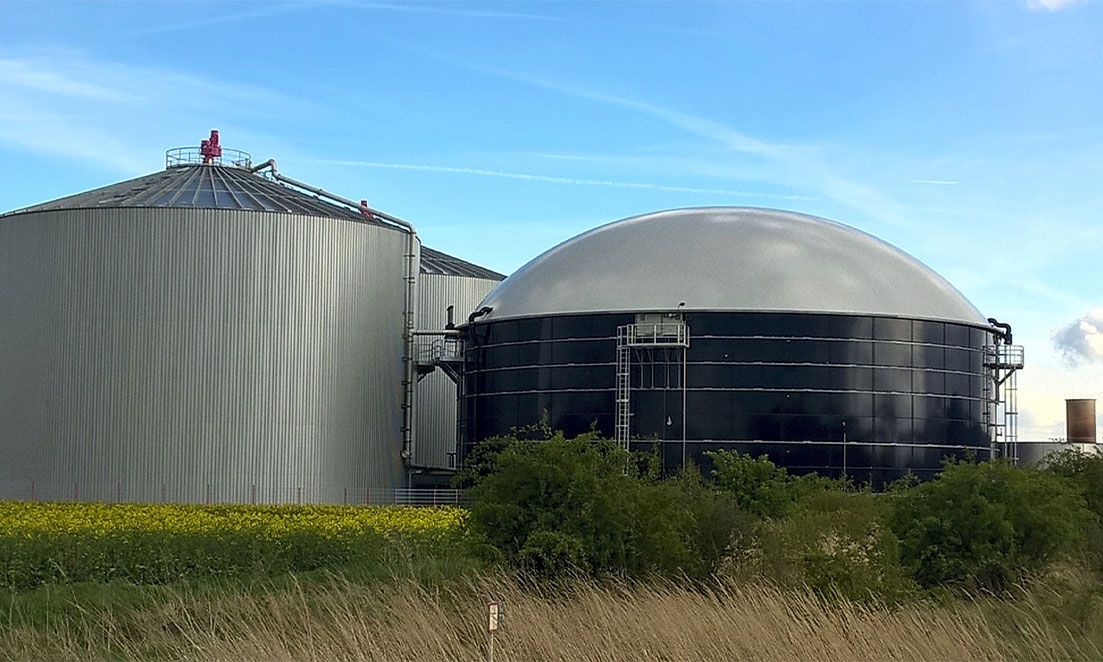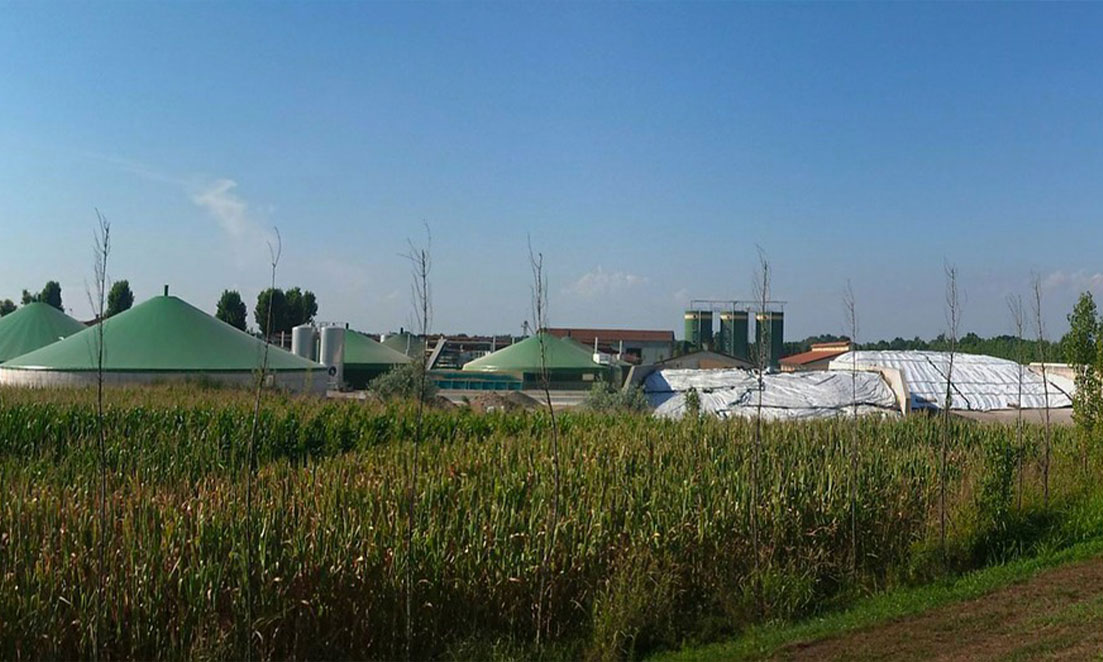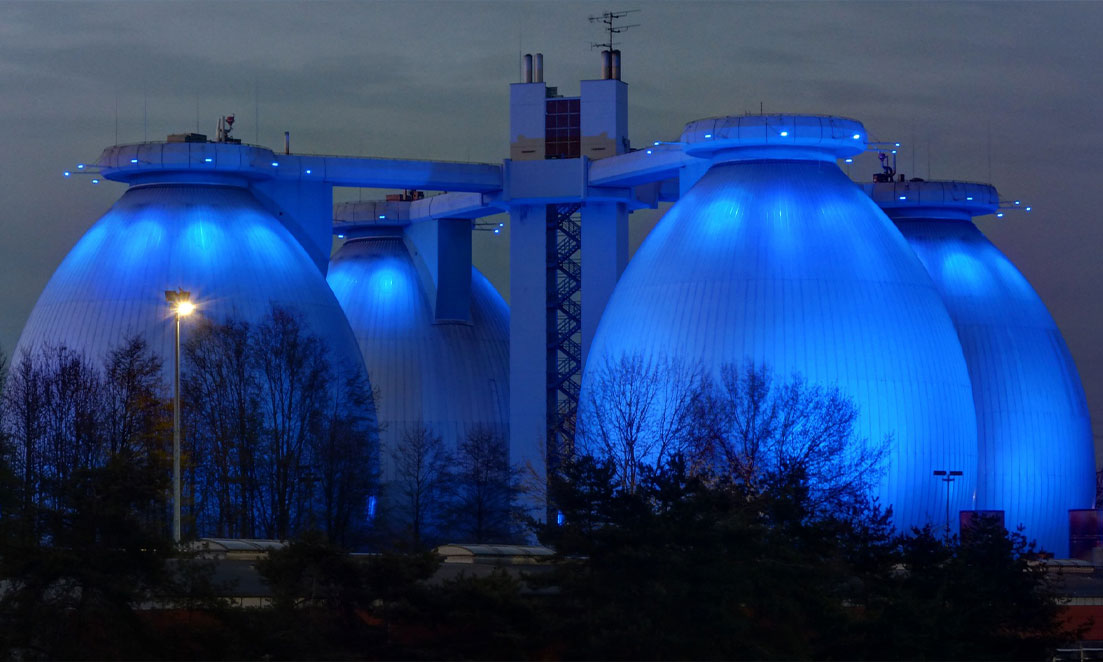Biogas is a biofuel that is produced from the natural decomposition of organic matter. When organic matter such as animal manure, food scraps, and plant material is exposed to an environment wherein oxygen is absent, they release a blend of gases, particularly methane and carbon dioxide. This process is also called anaerobic digestion.
Anaerobic digestion breaks down organic matter through the process of fermentation. The biogas that is produced contains high levels of methane — usually around 50 to 70%. Methane is nearly thirty times more capable of trapping heat than carbon dioxide, making it an excellent source of energy. This is why biogas is considered an environmentally-friendly energy source.
What Organic Matter Does Biogas Use?
The main types of organic matter that are used in the production of biogas include:
-
- Food waste
-
- Animal manure
-
- Plant material
-
- Wastewater biosolids
-
- Sanitary sewage
-
- Biodegradable by-products from industries (e.g. slaughterhouses)
What Gases are Found in Biogas?
Biogas is primarily composed of 50-70% methane, 30-40% carbon dioxide, and small amounts of other gases including hydrogen sulphine, siloxanes, and moisture. Since the production of biogas depends on the type of organic matter involved, there are no exact quantities as to the amount of each gas.
Is the Production of Biogas Naturally Occurring?
Biogas production is a natural process. It occurs across all ecosystems, whether in swamps, rice paddies, rivers, oceans, and so on. Generally, biogas is capable of being produced in any area where organic matter is exposed to anaerobic environments.
Why is Biogas Important to the Environment?
The use of biogas, along with other forms of bioenergy, has the potential to significantly reduce greenhouse gases as well as minimize the globe’s reliance on fossil fuels. If biogas is used to replace polluting energy sources such as coal and oil, the globe’s carbon dioxide (CO2) levels will begin to decrease. Biogas provides industries with a renewable energy source that does not produce harmful emissions.

Biogas energy takes advantages of the earth’s natural tendency to transform organic matter into useful substances. Biogas is even more important today due to the waste crisis that is continuing to threaten the environment on a global scale. Currently, landfills are filled with rotting waste that is turning into methane. Methane is a greenhouse gas that is more potent than CO2. In fact, the methane found in landfills accounts for nearly 5% of the world’s greenhouse gas emissions.
Biogas production provides a solution to the globe’s growing landfill crisis by processing waste and turning it into biogas, instead of allowing methane gas to reach the atmosphere.
What are the Main Advantages of Biogas?
#1 Biogas is Renewable
Biogas is considered a clean source of energy. When biogas is generated, it does not produce harmful emissions. Since it does not require combustion, it does not, in effect, release greenhouses gases into the atmosphere. Hence, it is an excellent solution to fight global warming.
Biogas plants capture methane and use it as fuel before it travels into the atmosphere. It curbs the globe’s reliance on fossil fuels such as coal and oil.
Another advantage is that biogas does not require energy to generate. It requires only organic materials such as soil, plants, crops, manure, etc., making biogas energy a highly sustainable solution.
#2 Biogas Provides Stable Electricity
Business electricity prices will only keep rising. At the start of 2021, the price for electricity in the United Kingdom saw an all-time high at £1,500 a megawatt-hour. Additionally, there will not be enough electricity to power every home in the country unless more power stations are constructed.
Biogas not only provides stable electricity due to its renewable nature, but it is also much cheaper to produce. It will not be limited to powering homes, but biofuel may also be used to power vehicles and other modes of transportation. The main benefit, however, is that since it is cheap to produce, its price will remain low.

#3 Biogas can be Produced on a Small Scale
Biogas generation is generally uncomplicated. Biodigesters are easy to set up, allowing homeowners to produce their own renewable energy source from home through the use of animal manure, food scraps, and plant material. This small-scale production lets households generate energy that can be used for cooking and heating.
Farms will be at an advantage because of the abundance of plants and waste produced by livestock each day. The manure of one cow is enough to power a single lightbulb for one whole day.
#4 Biogas is Reliable
Unlike other renewable energy sources such as solar and wind, which depend on weather factors, biogas can be generated continually. It requires only organic materials, allowing its production process to be uninterrupted. Biogas renewable energy can be used alongside solar and wind energy without fail.
What is the State of Biogas Production in the UK?
According to the National Non-Food Crops Centre (NNFCC), there are 579 anaerobic digestion (AD) plants in the United Kingdom, with 88 of those being biomethane-to-grid plants.
A report by the Anaerobic Digestion and Bioresources Association (ADBA) states that the country could generate biomethane of around 8 billion m3 per year by 2030 — that is enough to power nearly six million homes. This projection may soon be possible, especially with the UK Government’s commitment to the Renewable Heat Incentive (RHI), which provides financial incentives to business owners who utilize renewable heating technologies.

In addition, the UK Government has mandated all local authorities to practice food waste segregation. With nearly 10 million tons of food wasted annually (from households as well as industrial and commercial sources), this provides AD operators and utility suppliers with an opportunity to generate massive amounts of biogas. Currently, only 15% of the country’s total food waste is processed into biogas.
Agriculture offers the most room for growth. The National Farmers Union (NFU) has committed to achieving net-zero greenhouse gas emissions by 2040. To do this, those in the farming industry will have to process millions of tons of agricultural waste, such as manure, plant waste, and slurries, into biogas.
Join the Movement to Biogas
Biogas has the potential to mitigate the effects of climate change. If you’re interested in shifting your business utilities to biogas, get in touch with watt.co.uk today. We help our clients shift to more cost-efficient and renewable sources of energy. For more information, contact us today.